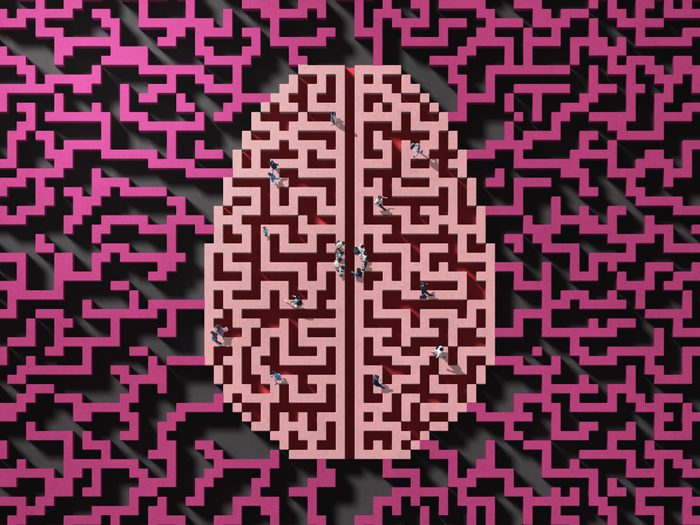In a New Study, ADHD Tripled the Risk for Developing Dementia
Updated: Oct. 26, 2023

The study involved 100,000 participants, and also shows that adult-onset ADHD may be more common than you might have been aware.
You eat well, exercise, see your doctor regularly and generally have this whole aging thing under control. The idea of getting older can become daunting when you think of dementia and the accompanying loss of memory and self-sufficiency. Sometimes, when celebrities like Bruce Willis are associated with this disease, it brings a particular health issue to the forefront. However, many individuals and their caregivers face the debilitating effects of dementia daily.
Just imagine if there were a way to predict the onset of dementia. Well, now there may be. A study published on October 17, 2023, in the Journal of the American Medical Association, a peer-reviewed medical journal, aimed to investigate the potential link between adult onset Attention-deficit hyperactivity disorder (ADHD) and the development of dementia, as suggested by previous research. The study revealed that individuals diagnosed with adult ADHD had nearly three times the risk of also developing dementia.
The link between adult ADHD and dementia
This study tracked more than 100,000 members of an Israeli health management plan (similar to the idea of a US health insurance provider) over a span of 17 years. The average age of the group at the start was around 57, and they were monitored for the development of adult ADHD and subsequent dementia diagnoses as they aged.
The research concluded that there was a statistically significant correlation between the development of adult ADHD and dementia. Over 13% of those diagnosed with adult ADHD also experienced dementia, whereas only 7% of those without an ADHD diagnosis eventually suffered from dementia.
Though conducted in an Israeli population, the study’s findings were consistent with dementia rates in other Western nations, including the United States.
Eating This Berry Can Improve Your Heart & Brain Health in 8 Weeks, New Study Says
Key discoveries and study limitations
The link between adult ADHD and dementia is noteworthy because it offers potential treatment options and strategies to counter age-related decline. If you or a loved one develop ADHD later in life, it might be wise to be vigilant for early signs of dementia and consider engaging in activities that promote brain health. Additionally, the study indicated that individuals diagnosed with adult ADHD who were treated with psychostimulant medications did not experience the same progression to dementia, suggesting a potential avenue for prevention.
However, the study had limitations. It couldn’t expand on the connection or explain the underlying brain changes that lead to these conditions occurring together. It also couldn’t establish a link between childhood ADHD and dementia, which warrants further investigation.
Furthermore, while individuals treated with psychostimulant medications benefited, the potential negative side effects of these drugs, such as increased blood pressure, should be weighed against the positive effects.
It’s crucial to note that the study involved a large number of participants, and only a small fraction developed either disease. Nonetheless, it’s worthwhile to be watchful for signs of adult ADHD in yourself and your aging family members, and if diagnosed, to continue monitoring for signs of dementia. Regardless of the risk of ADHD or dementia, there are several actions you and your loved ones can take now to mitigate or reverse age-related decline.

















